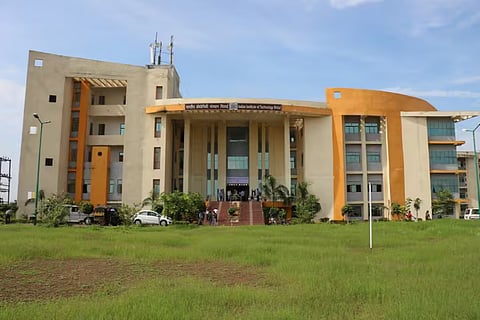

Researchers at the Indian Institute of Technology (IIT) Bhilai have developed a cost-effective and eco-friendly method to recycle polyethylene terephthalate (PET) plastic using a reusable nano iron catalyst. The technique converts PET waste into its original monomer under mild conditions, enabling true circular recycling without the need to separate bottle caps from bottles, noted The Times of India.
Breakthrough in depolymerisation
The team — Priyank Sinha, Sudipta Paul, Swarup Maity and Dr Sanjib Banerjee from the Department of Chemistry, designed a selective depolymerisation protocol to transform PET waste into its high-value monomer, bis(2-hydroxyethyl) terephthalate (BHET). A magnetically recoverable nano zero-valent iron (nZVI) catalyst was used in the process, which can be reused multiple times without loss of activity.
“Under the existing recycling system, a plastic bottle and its cap, which are made of different plastics, have to be segregated and recycled separately. This costs the industry more time and money. In our case, segregation of the cap and bottle is not required, and a new product can be obtained directly,” explained Dr Banerjee.
Industry interest and patent filed
Backed by the Department of Scientific and Industrial Research-Centre for Research and Technical Development in Human Resources (DSIR-CRTDH), Government of India, the team has filed a patent and is collaborating with industry to scale up the technology. Industries have already approached IIT Bhilai, with a prototype recycling machine in the works.
Globally, around 350 million tonnes of plastic waste are generated each year, with PET bottles forming a significant share. Since PET takes centuries to degrade, the researchers believe this innovation could reshape plastic waste management.
